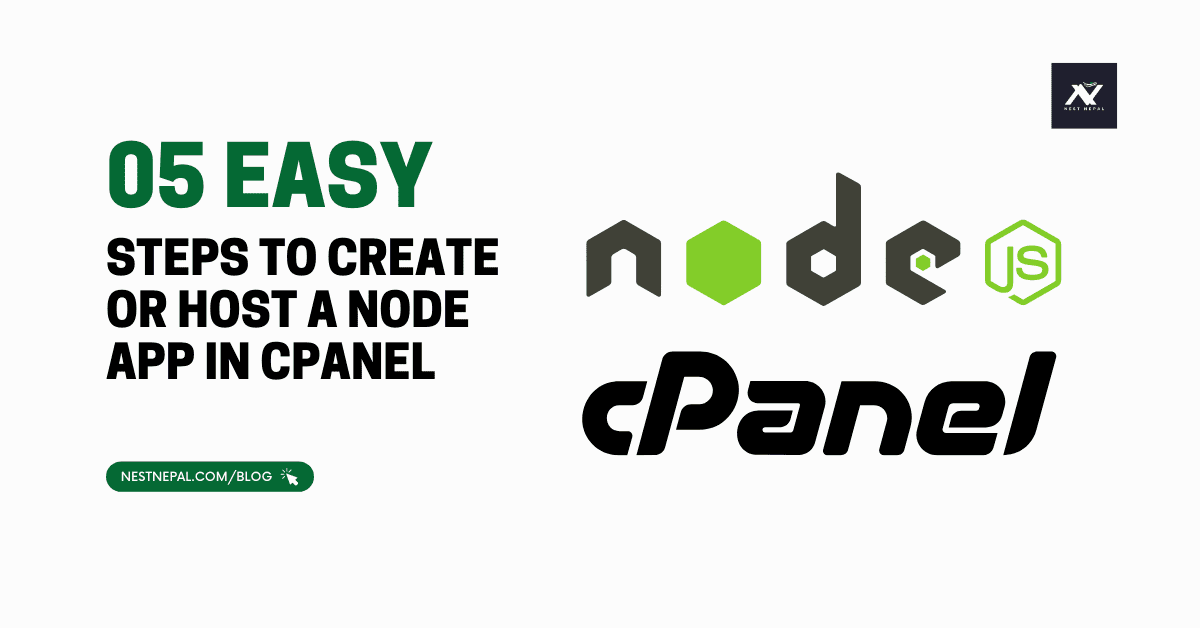Control panels serve as the central hub for managing web hosting environments, providing users with intuitive interfaces to oversee various aspects of server and website management. Choosing the right control panel is crucial for optimizing efficiency and productivity in web hosting operations.
In the digital landscape, where web hosting plays a pivotal role in establishing an online presence, control panels serve as the command center for managing hosting environments efficiently. With numerous options available, selecting the right control panel is paramount for ensuring seamless website management and server administration. In this article, we explore the comparison between two prominent control panels: Plesk vs cPanel.
Plesk vs cPanel: Quick Comparison
| Features | Plesk | cPanel |
| User Interface | Clean and modern interface with customizable options. | Intuitive and user-friendly interface. |
| Operating Systems | Supports both Linux and Windows environments. | Primarily Linux-based, with limited Windows support. |
| Pricing | Offers both server-based and subscription-based models. | Typically licensed per server with tiered pricing. |
| Server | Provides robust server management tools. | Offers extensive server management capabilities. |
| Security | Includes security features like firewall and antivirus. | Offers security features like SSL/TLS management. |
| Extensions | Offers a diverse range of extensions and add-ons. | Limited selection of third-party extensions. |
Overview of Plesk

Plesk, a popular control panel, has been around for a long time and has lots of tools made for both beginners and experienced users. Its user-friendly interface, multi-server management capabilities, and robust security features make it a compelling choice for many users.
History and Background
Plesk was originally developed by Plesk International GmbH. Plesk has evolved over the years to become one of the leading control panels in the industry. Although Plesk has been acquired by various companies throughout its history, it has maintained its commitment to simplicity and functionality.
Key Features
1. User-Friendly Interface: Plesk offers an intuitive dashboard that simplifies server and website management tasks, allowing users to perform complex operations with ease.
2. Multi-Server Management: With Plesk, users can efficiently manage multiple servers from a single interface, streamlining administrative tasks and enhancing productivity.
3. Security Features: Plesk prioritizes security with features such as built-in firewalls, malware scanning, and SSL certificate management, ensuring the safety and integrity of hosted websites.
Supported Platforms
Plesk supports a wide array of operating systems, including Windows and various Linux distributions. This versatility makes Plesk an ideal choice for users operating in diverse hosting environments, ensuring compatibility and flexibility.
Overview of cPanel

cPanel is another prominent control panel, which offers a comprehensive suite of tools for managing web hosting environments. Its intuitive dashboard, extensive automation tools, and robust security measures have made it a favorite among hosting providers and users alike.
History and Background
cPanel was Founded in 1996. Ever since cPanel has established itself as a pioneer in web hosting automation, revolutionizing the way hosting services are managed. Acquired by Oakley Capital in 2018, cPanel continues to innovate and evolve to meet the changing needs of its users.
Key Features
1. Intuitive Dashboard: cPanel’s user-friendly interface provides easy access to a wide range of features and settings, allowing users to manage their hosting accounts efficiently.
2. Extensive Automation Tools: cPanel offers a plethora of automation tools, such as cron jobs and script installers, enabling users to automate repetitive tasks and streamline their workflow.
3. Robust Security Measures: cPanel prioritizes security with features like IP blocking, password protection, and two-factor authentication, safeguarding hosting environments against potential threats.
Supported Platforms
cPanel primarily supports Linux-based hosting environments, with limited support for Windows servers. This focus on Linux compatibility makes cPanel an ideal choice for users seeking a reliable and feature-rich control panel for their Linux hosting needs, enthusiasts and businesses.
Also Read: How to Deploy React App in cPanel?
Plesk vs cPanel: Comparison of Features
Plesk‘s approach emphasizes simplicity and ease of use, appealing to users who prioritize intuitive interfaces. Its feature set is designed to provide essential functionalities without overwhelming users with complexity. While cPanel is renowned for its feature-rich dashboard, which supports users who prioritize functionality and customization. Its extensive set of tools and features empower users to manage their hosting environment with precision and control.
Plesk vs cPanel: Interface and Usability
Plesk’s intuitive interface supports users seeking simplicity and ease of use. With its clean design and straightforward navigation, Plesk ensures that users can efficiently manage their hosting environment without extensive technical knowledge.
cPanel’s interface is packed with features and options, providing users with extensive control over their hosting environment. While it may appear complex at first glance, cPanel’s interface is designed for efficiency, enabling users to perform advanced tasks with ease.
Plesk vs cPanel: Server Management Capabilities
Plesk excels in multi-server management, making it a preferred choice for hosting providers managing multiple servers. Its centralized dashboard allows users to easily oversee and administer various servers from a single interface, streamlining administrative tasks and improving efficiency.
cPanel offers extensive automation tools for efficient server administration. From account management to DNS configuration, cPanel streamlines server management tasks, enabling users to automate repetitive processes and save time.
Plesk vs cPanel: Security Features
Plesk prioritizes security with built-in measures that provide comprehensive protection against threats. From SSL/TLS management to firewall configuration, Plesk offers a range of security features to safeguard hosting environments and data.
cPanel’s security features focus on access control and intrusion prevention. With features like IP address blocking and password protection, cPanel helps users safeguard their hosting environment against unauthorized access and security threats. 
Plesk vs cPanel: Supported Platforms and Integration
Plesk supports a wide range of operating systems, including Windows and various Linux distributions, making it suitable for diverse hosting environments. Its flexibility in platform support enables users to deploy Plesk in various configurations to meet their specific needs.
cPanel primarily supports Linux-based hosting environments, with limited support for Windows servers. Its focus on the Linux platform ensures compatibility and reliability for users seeking a robust hosting solution.
Plesk vs cPanel: Performance and Resource Usage
Plesk optimizes resource consumption for efficiency, ensuring minimal impact on website performance. Its streamlined architecture and efficient resource management contribute to a seamless hosting experience for users.
cPanel optimizes resource usage for speed and reliability, providing users with a seamless hosting experience. Its efficient resource management ensures that websites load quickly and perform well, even under heavy traffic loads.
Plesk vs cPanel: Pricing and Licensing Models
Plesk offers flexible pricing plans tailored to different user needs, including subscription-based and perpetual licensing options. This allows users to choose a pricing model that aligns with their budget and usage requirements.
cPanel follows a tiered pricing structure based on server usage, with additional fees for add-on services and support. This pricing model offers flexibility for users to choose the features and services that best suit their needs and budget.
Plesk vs cPanel: Support and Documentation
Plesk provides comprehensive support channels, including documentation, tutorials, and community forums. Its robust support ecosystem ensures that users have access to resources and assistance when needed.
cPanel offers comprehensive support channels, including documentation, tutorials, and community forums. Its extensive support ecosystem ensures that users have access to resources and assistance to resolve issues and optimize their hosting environment.
Plesk vs cPanel: Customization and Flexibility
Plesk offers extensive customization options and third-party integrations, allowing users to customize their hosting environment to their specific requirements. Whether it’s customizing settings or integrating additional services, Plesk provides flexibility to adapt to users’ needs.
cPanel provides flexibility through customizable themes and plugins, enabling users to personalize their dashboard and workflow. With a wide range of customization options, cPanel allows users to tailor their hosting environment to their specific preferences.
Plesk vs cPanel: Community and Ecosystem
Plesk boasts a vibrant community and ecosystem, with a wide range of extensions and integrations available to enhance functionality. Its active community of users and developers contributes to its ecosystem, enriching the platform with new features and capabilities.
cPanel has a dedicated community of users and developers contributing to its ecosystem through plugins and add-ons. Its active community enriches the platform with new features and capabilities, enhancing its functionality and usability.
Plesk vs cPanel: Scalability and Growth Potential
Both Plesk and cPanel are scalable solutions capable of accommodating the growing needs of users and businesses. Whether scaling up to accommodate increased traffic or expanding to multiple servers, both control panels (plesk vs cPanel) offer scalability and growth potential.
Plesk vs cPanel: Case Studies and User Feedback
Success stories and user feedback provide valuable insights into the real-world performance and usability of Plesk vs cPanel. By analyzing case studies and user testimonials, potential users can gain a better understanding of which control panel best suits their needs and requirements.
Conclusion
In conclusion, choosing between Plesk and cPanel depends on various factors, including interface preferences, server management requirements, security needs, and budget constraints. By carefully evaluating the features, performance, pricing, and support options of each control panel, users can make an informed decision that aligns with their hosting goals and objectives. Ultimately, the best control panel is the one that meets the unique needs and preferences of each individual or organization.
Learn more: Get Ultimate Hosting Upgrade with VPS Hosting







